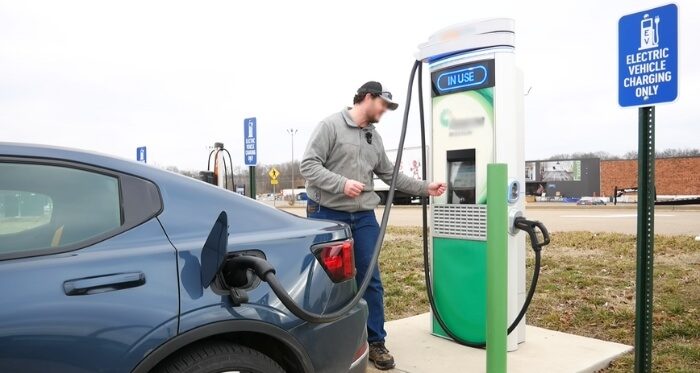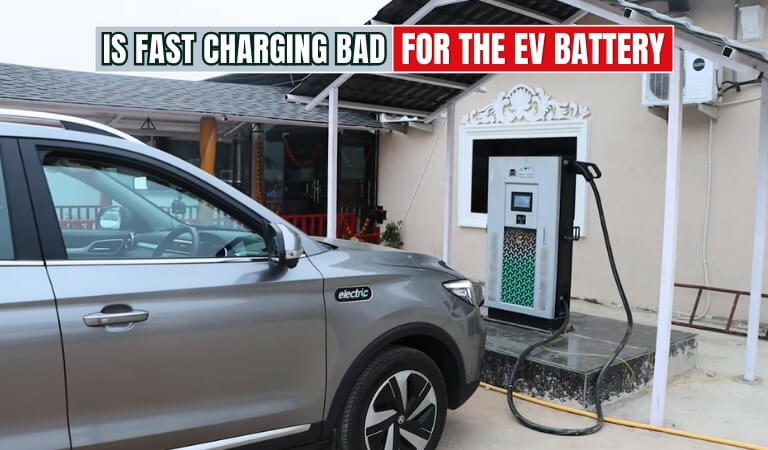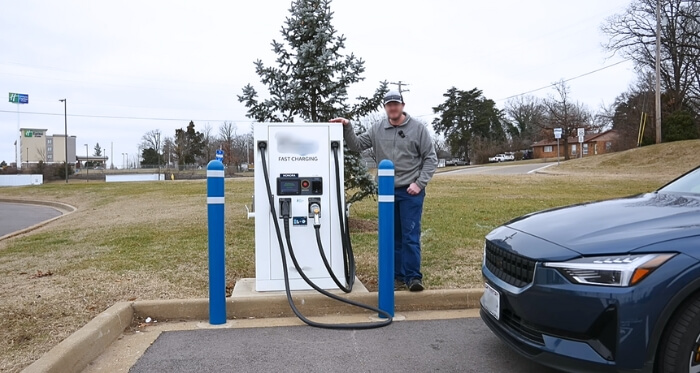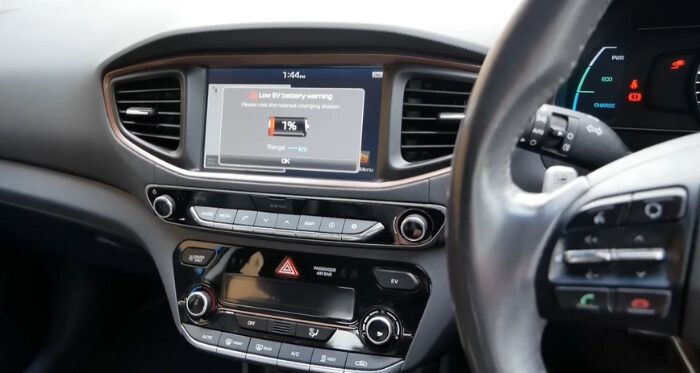Electric vehicles, with their sleek designs and eco-friendly credentials, have been a game changer in the way we travel. A key element of their appeal is their ability to be charged quickly. This begs the question: Is fast charging bad for the EV battery?
While fast charging can be a game-changer in terms of time-saving, its frequent use might impact the battery’s lifespan, potentially diminishing its capacity and longevity. But don’t worry, occasional fast charging is generally safe and won’t harm your vehicle.
Introducing the CrackPlatoon CSL service where a team experts works day and night to make the life of EV owners better in Bangladesh. If you take a moment to get into contact with them. They’ll be sure to give you all the ins and outs of fast charging, both the good and the bad.
If you’re curious to learn more about weather the fast charging is bad or not and you don’t mind spare us a few moment more, than stay with us for the following segments as we’ve explaining the importance of fast charging for EV and bring forth the good and the bad.
The Importance of Fast-Charging for Electric Vehicles
Electric vehicles (EVs) are reshaping our travel habits, and at the heart of this transformation is fast-charging technology. This breakthrough not only brings convenience but also aligns electric mobility with the fast-paced rhythm of our lives. It’s a significant leap forward, making EVs more appealing and practical for everyday use.

You can recharge your EV during a short break, like a coffee stop on the way. It’s all thanks to the fast-charging option, as it dramatically cuts down on charging times compared to traditional methods. It’s a game-changer for those who take long journeys, removing the worry of lengthy charging halts. This quick recharge capability ensures EVs meet the dynamic lifestyles of modern drivers, closely mirroring the refueling experience of gasoline vehicles.
Furthermore, the growing network of fast-charging stations is a testament to the evolving EV landscape. This increase in accessibility means more freedom for EV owners, significantly easing concerns about battery range. As these stations become more common, choosing an EV becomes an easier decision for many.
Fast charging isn’t just a technical feature; it’s a crucial element that’s making electric vehicles a viable option for more and more people. It’s transforming the EV world. It bridges the practicality gap between traditional vehicles and EVs, assuring users that they can rely on electric cars for their everyday needs. Fast charging is a key player in pushing us towards a greener, more sustainable, and more efficient future in transportation.
Is Fast Charging Bad for the EV Battery?
Fast charging has become a popular feature for electric vehicles (EVs), offering the convenience of quickly powering up. However, the impact of fast charging on EV batteries is nothing to be taken lightly.

In fast charging the EV batteries receive a high boost of electricity of power to charge it faster. While it’s not necessarily a bad thing, when you use fast charging too frequently for your EV, it can potentially affect the battery’s lifespan and efficiency. Here are some factors you should keep in mind while using a fast EV Charger:
Heat Generation
Any fast charging naturally generates more heat than standard charging. This excessive heat can lead to battery degradation. Managing temperature during fast charging is crucial for battery health. EVs often have cooling systems to mitigate this. However, if you use fast charging too often, then the internal cooling system won’t be able to help maintain the battery’s health.
Battery Chemistry
In EVs, the type of battery that is used plays a role in the efficiency of the vehicle. It is a fact that Lithium-ion batteries, which are found in many electric vehicles, can be sensitive to fast charging. Fast charging these batteries on a regular basis may accelerate their wear and tear over time. So, choosing the right charging method for the right battery is vital.
Charging Frequency
The frequency of fast charging also matters. Occasional fast charging is generally considered safe. However, consistently relying on fast charging can strain the battery. Balancing fast charging with regular charging methods is recommended.
Overall Longevity
It’s a fact that fast charging can impact the overall longevity of EV batteries. Careful and occasional use minimizes negative effects. Regular maintenance and monitoring can prolong battery life. EV users should be aware of their charging habits for optimal battery health.
Charger Compatibility
Charger compatibility is another important factor. Not all EVs and chargers are created equal. Using a charger that exceeds the recommended rate can stress the battery. It’s vital to use chargers that match the vehicle’s specifications.
Battery State of Charge
The battery’s state of charge when fast charging also influences its health. There can be a lot of strain when you are charging from a very low state. It’s often better to fast charge after the battery has some charge already. You should avoid charging from zero consistently is advisable.
Environmental Factors
External temperatures affect battery performance during fast charging. Extreme cold or heat temperatures can amplify the stress on the battery. Parking in shaded areas or using cooling systems can help. Being mindful of environmental conditions when charging is beneficial.
While fast charging is not inherently harmful to EV batteries, various factors must be considered to ensure the battery’s longevity and efficiency. Smart charging habits and taking advantage of the vehicle’s built-in protections can help maintain battery health even with occasional fast charging.
How Often Should You Use Fast Charging for Your EV?
Determining the ideal frequency for using fast charging in electric vehicles (EVs) is crucial for maintaining long-term battery health. While convenient, fast charging should be balanced with regular charging methods. Understanding this balance can significantly extend your EV’s battery life.

Generally, to keep your EV’s Battery health in check, fast charging should be an occasional convenience; you should avoid using it on a daily basis. If you limit fast charging only on long trips or urgent situations, it will help preserve battery integrity for a long time. Our study shows that regularly using slower charging methods for daily needs is recommended for optimal battery longevity. This approach ensures your EV’s battery stays healthy over time.
Moreover, being mindful of your EV’s battery level before fast charging can make a difference. It’s generally better to fast charge when the battery isn’t too low. You can also take helping guidelines from professional services like CrackPlatoon CSL service. CrackPlatoon provides proper guidelines on how to charge your EV and which charging methods are best for your electric car.
The Drawbacks of Continuous Fast-Charging on the EV’s Battery
There’s no doubt fast charging is beneficial for electric vehicle (EV) owners, which offers quick battery top-ups. However, its continuous use can easily harm the EV’s battery. So, properly maintaining your EV’s health and efficiency requires understanding the drawbacks that come with the continuous use of fast charging methods. Here are the few drawbacks you should know when using fast charging:
- Increased Heat Production: As you know by now, fast charging generates more heat than a traditional EV charger. This excessive heat can lead to degraded battery cells. This heat accelerates wear and tear on the battery, reducing its lifespan.
- Capacity Reduction: In continuous use of fast EV charging, over time, it can decrease the battery’s total capacity. As a result, the range that your EV can travel on a full charge decreases, resulting in a decrease in its range.
- Cell Imbalance: The constant fast charging may cause imbalances in the battery cells. Battery performance and efficiency can be affected by these imbalances.
- Stress on Battery Components: The intense energy flow during fast charging puts additional stress on the battery components. This stress can lead to earlier-than-expected failures of battery parts.
It’s true that fast charging offers an advantage, but its continuous use can significantly impact the health and longevity of an EV’s battery. It’s important for EV owners to strike a balance between fast and regular charging to ensure their vehicle’s battery remains efficient and reliable for years to come.
Tips to Help You Maintain Your EV Battery for a Long Time
The battery of your electric vehicle is one of the most important components of your vehicle. In order to ensure its longevity and efficiency, you need to maintain it properly. Only proper care can ensure that the EV remains reliable and performs at its best. Here are some practical tips to keep your EV battery in top condition for a longer period:

- Balanced Charging Habits: Try to avoid relying solely on fast charging; use standard charging methods for regular use. This balance reduces strain on the battery, extending its life.
- Monitor Charge Levels: You should keep the battery charge between 20% and 80% to ensure its health. Try to avoid depleting the battery or charging it to 100% too often.
- Temperature Considerations: Any extreme temperature, whether hot or cold, is never a good thing for your EV’s Battery. Try to park your EV in shaded areas or use temperature control features to help.
- Regular Maintenance Checks: You should schedule regular maintenance and checkups for your EV. You can also take advice from professionals like CrackPlatoon. They can provide expert advice on battery care.
- Software Updates: Every EV system gets updates from time to time. It’s essential to keep your EV’s software up to date. As most of the time, these updates come with optimizations for battery management and efficiency.
- Gentle Driving Habits: Last but not least, you should adopt a smooth driving style. Rapid acceleration and hard braking can affect the battery’s longevity adversely.
Taking good care of your EV’s battery requires a combination of mindful charging, regular maintenance, and gentle usage. Remember, consulting professionals like CrackPlatoon for specialized advice can be invaluable in keeping your EV battery safe and efficient. With these tips in mind, you can enjoy a reliable and high-performing electric vehicle for years to come.
Last Words
Electric vehicles (EVs) have brought a significant shift in our travel dynamics, with fast charging emerging as a pivotal feature for convenience and efficiency. However, the question “Is fast charging bad for the EV battery?” reveals a complex answer.
While not inherently harmful, frequent fast charging can lead to increased heat production, reduced battery capacity, cell imbalances, and added stress on battery components. To maintain your EV’s battery for a long time, it’s essential to balance fast and standard charging methods, monitor charge levels, consider temperature effects, regularly update software, and adopt smooth driving habits.
Consulting with professionals like CrackPlatoon can also provide valuable guidance. These practices ensure that your EV remains a reliable and high-performing companion on the road, highlighting the critical balance between innovation and sustainability in the realm of electric mobility.
